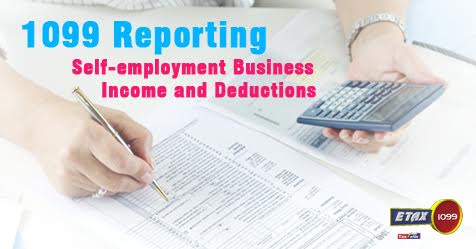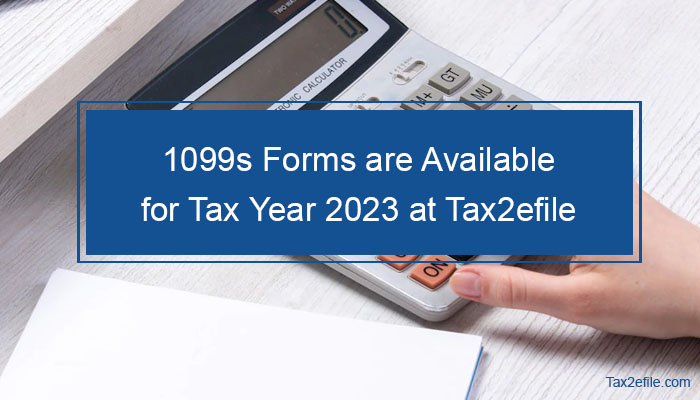- April 12, 2018

IRS 1099 form is for self- employers and contains series of documents which is used for information return. IRS 1099 form consists of various forms which can be used to report an individual’s different types of income received throughout the financial year. This income excludes the salary from your current employer. 1099 tax form is filled and sent by the employer or firm before Jan 31 of every year that pays you.

Self-employed individuals who are paid under 1099 tax form must submit 1040 form online along with Schedule C for the income they received during the year. IRS considers the following scenarios as a form of additional income and the individuals are expected to pay their tax return.
Independent Contractor or Self-employed
In case, if you are an employee who works for a particular company for a monthly salary or wage then your employer reports your earning on Form W2 at the end of every financial year. Else if you are a contractor or self-employed then you will receive Form 1099 from each of your client who pays you more than $600 per financial year.
Stock Investment & Dividends:
If you are into stock investment then you may receive 1099 DIV in order to report the dividends that you receive during the year. This revenue differs from the income you get from selling your stocks. It is considered as a payment of corporate earnings to the stakeholders.
Debt Cancellations:
In certain cases, though you never receive any payment your taxable income may increase. This is due to some cancellations of your debts by your creditor. Under such scenario, IRS treats the debt cancellation as a form of income and this becomes taxable. Hence the creditor sends you Form 1099 C when it cancels your debt and you no need to pay the outstanding amount.
Withdrawals from IRA:
If you withdraw your retirement amount from your IRA account, it is also considered as a form of income and it is taxable. In such case, you will receive Form 1099 R that consists of your withdrawn amount for the particular financial year and reports you before your tax return.
Deductions:
Form 1040 is used for regular personal income and Schedule C for business personal income. Along with the form, you will be provided with some additional space for business income and loss calculations.
Business Expense Deductions:
Self-employed individuals can deduct a wide amount of regular business expenses from their income compared to other common employees.
This regular business expense includes inventory cost, legal fees, and office space. The deductions can also be made for business expenses like office furniture, payroll, and computers.
Additional Deductions:
IRS allows some additional deductions to the self-employed individual for the expenses which differ between personal and business cost. Self-employed individuals can also avail deductions for gasoline, phone connections, office supplies, a portion of house rent, home insurance and other utilities that are used for business purpose.

